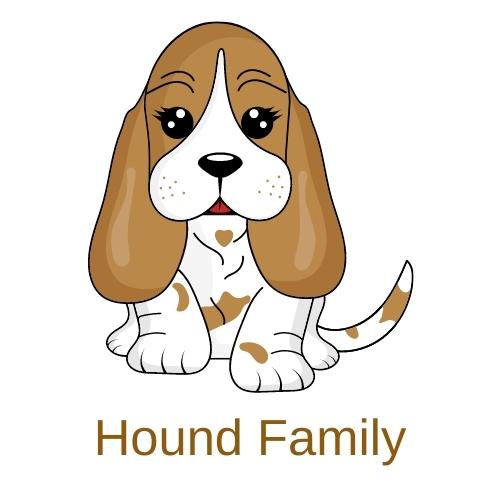
Introduction to Basset Hound Tremors
As a Basset Hound owner, it’s crucial to understand the unique health issues that your furry friend may encounter. One such issue is Basset Hound tremors. This article will provide a comprehensive overview of Basset Hound tremors, dog tremors in general, and the importance of understanding Basset Hound health issues.
- Defining Basset Hound Tremors
- Understanding Dog Tremors in General
- Importance of Understanding Basset Hound Health Issues
Basset Hound tremors, also known as shaking or shivering, are involuntary, rhythmic movements of your dog’s body. They can occur in any part of the body, but are most commonly noticed in the legs. Tremors can vary in severity, from barely noticeable to severe shaking that affects your dog’s ability to stand or walk.
It’s important to note that tremors are not exclusive to Basset Hounds. Many dog breeds can experience tremors for a variety of reasons. These can range from simple factors like being cold or scared, to more serious health issues like neurological disorders or poisoning. However, persistent and unexplained tremors should always be checked by a vet to rule out any underlying health problems.
Understanding the health issues that can affect your Basset Hound is crucial for their well-being. Basset Hounds are prone to certain health problems due to their unique physical characteristics and genetic makeup. Being aware of these issues, such as tremors, allows you to spot any signs early and seek veterinary help promptly. This can significantly improve your dog’s quality of life and longevity.
In the following sections, we will delve deeper into the causes, symptoms, and treatment of Basset Hound tremors. We will also provide some useful care tips to help you ensure your Basset Hound’s health and happiness.
Basset Hound Breed Information
The Basset Hound is a distinctive breed, known for its long ears, droopy eyes, and short legs. They are friendly, outgoing, and incredibly loyal, making them a popular choice for families. Let’s delve into the general characteristics and common health issues of Basset Hounds.
- General characteristics of Basset Hounds
- Common health issues in Basset Hounds
Basset Hounds are medium-sized dogs, typically weighing between 40-60 pounds. They have a short, smooth coat that comes in a variety of colors, including tri-color, black and white, and brown and white. Their most distinctive features are their long ears and droopy eyes, which give them a somewhat sad expression.
Despite their somewhat melancholy appearance, Basset Hounds are known for their friendly and outgoing nature. They are also incredibly loyal and form strong bonds with their families. They are generally good with children and other pets, making them a great choice for families.
Basset Hounds are also known for their keen sense of smell, which is second only to the Bloodhound. This makes them excellent trackers, although their stubborn nature can sometimes make them difficult to train.
Like all breeds, Basset Hounds are prone to certain health issues. These include obesity, due to their love of food and tendency towards laziness, and ear infections, due to their long, floppy ears. They are also prone to hip and elbow dysplasia, a condition that affects the joints and can lead to arthritis.
Basset Hounds are also prone to a condition called Gastric Dilatation-Volvulus (GDV), or bloat. This is a serious condition that can cause the stomach to twist, leading to a life-threatening situation. Owners should be aware of the symptoms of bloat, which include a distended abdomen, excessive drooling, and signs of discomfort.
Despite these potential health issues, with proper care and regular veterinary check-ups, Basset Hounds can live long and healthy lives.
In conclusion, Basset Hounds are a unique and lovable breed. Their friendly nature, loyalty, and distinctive appearance make them a favorite among dog lovers. However, potential owners should be aware of the breed’s common health issues and be prepared to provide the necessary care.
Shivers and Shakes in Basset Hounds
If you’re a Basset Hound owner, you might have noticed your furry friend shivering or shaking. This might seem alarming, but it’s important to understand what’s normal and what’s not. Let’s delve into the details.
Understanding the Difference
Shivers and shakes may seem similar, but they are different in several ways. Let’s break it down.
- Defining shivers in Basset Hounds
- Defining shakes in Basset Hounds
- Understanding the difference between the two
Shivering is a rapid, involuntary movement of the body. It’s like when you’re cold, and your body shakes to generate heat. In Basset Hounds, shivering can be a sign of various conditions, including feeling cold, excitement, or even certain health issues. It’s usually seen as a whole-body tremor and can last for a few minutes to several hours.
Shakes, on the other hand, are more localized. They usually affect a specific part of the body, like a leg or the tail. Shakes can be a result of muscle weakness, injury, or neurological issues. Unlike shivers, shakes can occur even when the dog is at rest.
The main difference between shivers and shakes lies in their causes and manifestations. Shivers are usually whole-body tremors and can be a response to environmental factors like cold or excitement. Shakes are more specific and could indicate underlying health issues. If your Basset Hound is shaking frequently or without apparent reason, it’s best to consult a vet.
Remember, while occasional shivers or shakes can be normal, frequent or prolonged episodes can be a sign of something more serious. Always keep a close eye on your Basset Hound’s behavior and consult your vet if you notice anything unusual.
| Shivers | Shakes |
|---|---|
| Whole-body tremors | Localized to a specific part |
| Can be due to cold or excitement | Can indicate muscle weakness or neurological issues |
| Usually stops when the dog is comfortable or calm | Can occur even when the dog is at rest |
Causes of Dog Tremors
Understanding the causes of dog tremors is crucial for every pet owner. Tremors, or uncontrolled shaking, can occur in dogs for a variety of reasons. These can range from simple factors such as excitement or cold to more serious health issues. In this section, we will delve into the common causes of dog tremors and focus specifically on Basset Hounds.
Specific Causes in Basset Hounds
Basset Hounds, like other breeds, can experience tremors. However, there are certain factors that are more specific to this breed. Here are some of the main causes:
- Genetic predispositions: Basset Hounds are genetically predisposed to certain health conditions that can cause tremors. For instance, they are prone to a condition called “Basset Hound Thrombopathia” which affects the blood’s ability to clot and can lead to tremors.
- Environmental factors: Environmental factors such as exposure to certain chemicals or extreme temperatures can also cause tremors in Basset Hounds. It’s important to ensure your pet’s environment is safe and comfortable.
- Dietary issues: Basset Hounds can also experience tremors due to dietary issues. This breed has a tendency to become overweight, which can lead to a variety of health problems, including tremors. Feeding your Basset Hound a balanced diet can help prevent this issue.
Understanding these causes can help Basset Hound owners take preventative measures to reduce the risk of tremors. In the following sections, we will discuss the symptoms of Basset Hound tremors and how to treat them effectively.
Symptoms of Basset Hound Tremors
If your Basset Hound is experiencing tremors, it’s crucial to recognize the signs. These symptoms can be divided into three main categories: physical signs, behavioral changes, and indications that it’s time to consult a vet.
- Physical signs: The most obvious sign of tremors in Basset Hounds is shaking or trembling. This can occur in one part of the body, like a leg, or it can affect the entire body. The shaking may be constant or it may come and go. Other physical signs can include difficulty walking, stiffness, or a lack of coordination. Your dog may also show signs of discomfort or pain, such as whining or whimpering.
- Behavioral changes: Changes in your Basset Hound’s behavior can also indicate that they are experiencing tremors. They may become less active or show less interest in activities they usually enjoy. Some dogs may become more clingy or anxious, while others may become more irritable or aggressive. Changes in eating or sleeping patterns can also be a sign of tremors.
- When to consult a vet: If you notice any of the above symptoms in your Basset Hound, it’s important to consult a vet as soon as possible. Early detection and treatment can help manage the symptoms and improve your dog’s quality of life. If the tremors are severe, occur suddenly, or are accompanied by other worrying symptoms like loss of consciousness, difficulty breathing, or seizures, you should seek veterinary attention immediately.
Remember, every dog is unique and may show different signs of tremors. It’s always best to consult with a vet if you have any concerns about your Basset Hound’s health.
Treating Basset Hound Tremors
When it comes to treating tremors in Basset Hounds, there are several medical treatments available. These options are designed to help manage the symptoms and improve the quality of life for your pet. Let’s delve into these treatments.
Medical Treatments
Medical treatments for Basset Hound tremors typically involve a combination of medications, surgery, and physical therapy. Each of these treatments serves a unique purpose and can be effective depending on the severity and cause of the tremors.
- Medications
- Surgery
- Physical Therapy
Medications are often the first line of treatment for Basset Hound tremors. These can include anti-inflammatory drugs to reduce swelling in the brain, pain relievers to manage discomfort, and anticonvulsants to control seizures. Always consult with your vet to determine the best medication for your pet’s specific needs.
In some cases, surgery may be necessary to treat Basset Hound tremors. This is typically the case when the tremors are caused by a physical abnormality, such as a brain tumor. Surgery can be a complex and risky procedure, so it’s important to discuss all the potential risks and benefits with your vet.
Physical therapy can be a beneficial part of a comprehensive treatment plan for Basset Hound tremors. It can help to strengthen your dog’s muscles, improve balance, and increase overall mobility. A professional canine physical therapist can provide targeted exercises and therapies to help manage your dog’s tremors.
Remember, every Basset Hound is unique and what works for one may not work for another. Always consult with a trusted veterinarian to create a treatment plan that is tailored to your pet’s specific needs and condition.
Home Remedies
Alongside medical treatments, there are also home remedies that can help manage your Basset Hound’s tremors. These are simple, everyday changes you can make to your dog’s lifestyle to improve their overall health and well-being. Let’s explore these remedies:
- Dietary Changes
What your Basset Hound eats can greatly affect their health. A balanced diet is crucial in managing tremors. Ensure your dog’s meals are rich in proteins, vitamins, and minerals. Avoid feeding them with foods high in sugar and artificial additives as these can exacerbate tremors. You might also consider adding supplements to their diet after consulting with your vet.
- Exercise Routines
Regular exercise can help keep your Basset Hound fit and healthy. It can also help reduce the severity of tremors. Aim for at least 30 minutes of exercise per day. This could be a walk in the park, a game of fetch, or even a swim. Remember, the goal is to keep your dog active but not overly exhausted.
- Stress Management
Stress can trigger tremors in Basset Hounds. It’s important to create a calm and comfortable environment for your dog. Avoid loud noises and sudden changes in their routine. You can also use toys and games to keep them entertained and relaxed. Additionally, regular grooming and petting can help soothe your dog and reduce their stress levels.
Remember, these home remedies are not a substitute for professional medical advice. Always consult with your vet before making any major changes to your Basset Hound’s lifestyle.
Basset Hound Care Tips
Ensuring the health and happiness of your Basset Hound involves more than just treating any tremors they may experience. It’s about overall care and maintenance. Here are some essential care tips to keep your Basset Hound healthy and content.
- Regular Vet Check-ups
- Proper Nutrition
- Regular Exercise
- Emotional Care
Regular vet check-ups are crucial for your Basset Hound’s health. These check-ups allow your vet to monitor your dog’s health and detect any potential issues early. Early detection can make a significant difference in treatment success and can prevent minor issues from becoming severe.
Just like humans, Basset Hounds need a balanced diet to stay healthy. This breed is prone to obesity, so it’s essential to monitor their food intake and ensure they’re getting the right nutrients. Consult with your vet about the best diet for your Basset Hound.
Despite their short legs and laid-back demeanor, Basset Hounds require regular exercise to maintain a healthy weight and keep their joints flexible. A daily walk or play session can help keep your Basset Hound in good shape and prevent obesity-related health issues.
Basset Hounds are known for their friendly and affectionate nature. They thrive on companionship and can become anxious or depressed if left alone for too long. Make sure to spend quality time with your Basset Hound, provide them with plenty of toys, and shower them with love and affection.
Remember, taking care of a Basset Hound is a long-term commitment that requires time, effort, and patience. But the rewards of having a healthy, happy Basset Hound by your side are well worth it.
Conclusion: Ensuring Your Basset Hound’s Health
In conclusion, the health of your Basset Hound is a critical aspect that requires your attention and understanding. The following points summarize the key insights we’ve discussed in this article.
- Importance of Understanding Basset Hound Tremors
- Role of Proper Care in Preventing Health Issues
- Final Thoughts on Basset Hound Health
Understanding Basset Hound tremors is crucial for every pet owner. Tremors can be a sign of various health issues, from simple cold to severe neurological disorders. By recognizing the symptoms early, you can seek veterinary help promptly, ensuring your pet gets the right treatment at the right time. Remember, early detection can make a significant difference in your pet’s health and quality of life.
Proper care plays a pivotal role in preventing health issues in Basset Hounds. Regular exercise, a balanced diet, routine vet check-ups, and timely vaccinations can help keep your pet healthy and happy. It’s not just about preventing tremors; it’s about ensuring overall well-being. Your love and care can make a world of difference in your pet’s life.
Basset Hound health should not be taken lightly. As a responsible pet owner, it’s your duty to ensure your pet’s well-being. Understanding the breed-specific issues, like tremors, and taking preventive measures can help your Basset Hound lead a healthy, fulfilling life. Remember, a healthy pet is a happy pet.
By following the tips and insights shared in this article, you can ensure your Basset Hound’s health and happiness. Your pet relies on you for their well-being, so make sure you’re up to the task. Here’s to many happy, healthy years with your Basset Hound!








